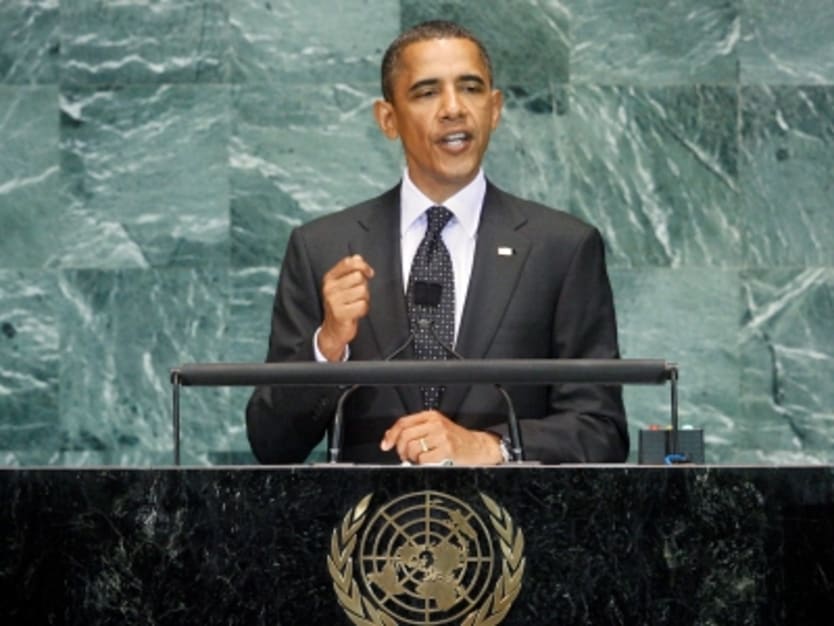
The U.S. will be more selective in choosing partner countries and refocus its development efforts on programs that have the greatest impact, U.S. President Barack Obama announced at the closing plenary of the U.N. summit on the Millennium Development Goals in New York.
Obama arrived at this year’s summit armed with the global development policy he promised at a U.N. General Assembly meeting in 2009. The new policy, which members of the international and U.S. development community have long been pressuring Obama to unveil, outlines a “new approach and new thinking that will guide our overall development efforts.”
The policy is anchored on four pillars: a new definition of development, a new view on the ultimate goal of development, a focus on broad-based economic growth, and a renewed call for mutual accountability.
The U.S. will begin pursuing development with the aim of creating situations where aid is no longer needed, Obama explained.
The pillars of Obama’s global development policy echo those outlined in the MDG action plan the administration recently unveiled. Members of the development community have indicated that they welcome the MDG strategy.
>> US Rolls Out Final MDG Strategy
The new policy announced at the U.N. summit also resembles the development policy that Obama mapped out at the G-8 meeting in Canada in June. The June announcement did not provide details beyond what was contained in the leaked draft report on the Presidential Study Directive on Global Development, or PSD-7.
>> At G8 Summit, Obama Validates Leaked Aid Reform
Obama’s U.N. speech was also short on details, focusing more on a broader description of the development policy and how the U.S. intends to implement it.
More selective
“We’re making it clear that we will partner with countries that are willing to take the lead.”
In these select partner countries, the U.S. will expand scientific collaboration and invest in key science and technologies, Obama explained. The U.S. will invest in research to develop ways to help women avoid being infected and in helping countries develop their agricultural sector and improve crop yields, he said as examples.
The Obama administration launched early this year a global hunger and food security initiative that aims to help a select number of countries implement country-owned development plans for agriculture-led growth and improved nutrition.
>> Feed the Future Targets Larger-Scale Projects in Fewer Countries
In May 2009, Obama launched a global health initiative that envisions strengthened health systems and increased and integrated investments in maternal and child health, family planning, nutrition and infectious diseases.
>> Shah Outlines Key GHI Features
Broad-based economic growth
“To unleash transformational change, we’re putting a new emphasis on the most powerful force the world has ever known for eradicating poverty and creating opportunity. The force I’m speaking of is broad-based economic growth.”
Another focus of Obama’s global development policy is promoting broad-based economic growth. The U.S., the president said, will focus on helping its partner countries create attractive investment climates, fight corruption, and promote good governance and democracy. It will also work to help break “barriers to regional trade and urge nations to open their markets to developing countries.”
Guided by this goal, Obama said the U.S. will invest in the health, education and rights of women and young people with the goal of developing the next generation of women and young entrepreneurs.
Over the past months, Obama and U.S. Secretary of State Hillary Clinton hosted entrepreneurial summits for people in Muslim-majority countries, young African leaders, and women entrepreneurs. Clinton also launched, during the Clinton Global Initiative, a new alliance that targets to improve women’s health by providing them with clean cookstoves.
>> Obama Promotes US-Muslim Relations in Entrepreneurial Summit
>> Clinton Rolls out New Initiatives for Women Entrepreneurs
>> CGI Mobilizes USD2.5B in Aid Pledges
Mutual accountability
“We’ll insist on more responsibility—from ourselves and others. We’ll insist on mutual accountability.”
The Obama administration will work with the U.S. Congress to better align its investments with the priorities of its partner countries, Obama said, explaining that the administration will review its priorities to be able to invest in programs that work and cut those that don’t.
“Because we need to be big-hearted and hard-headed,” he said.








